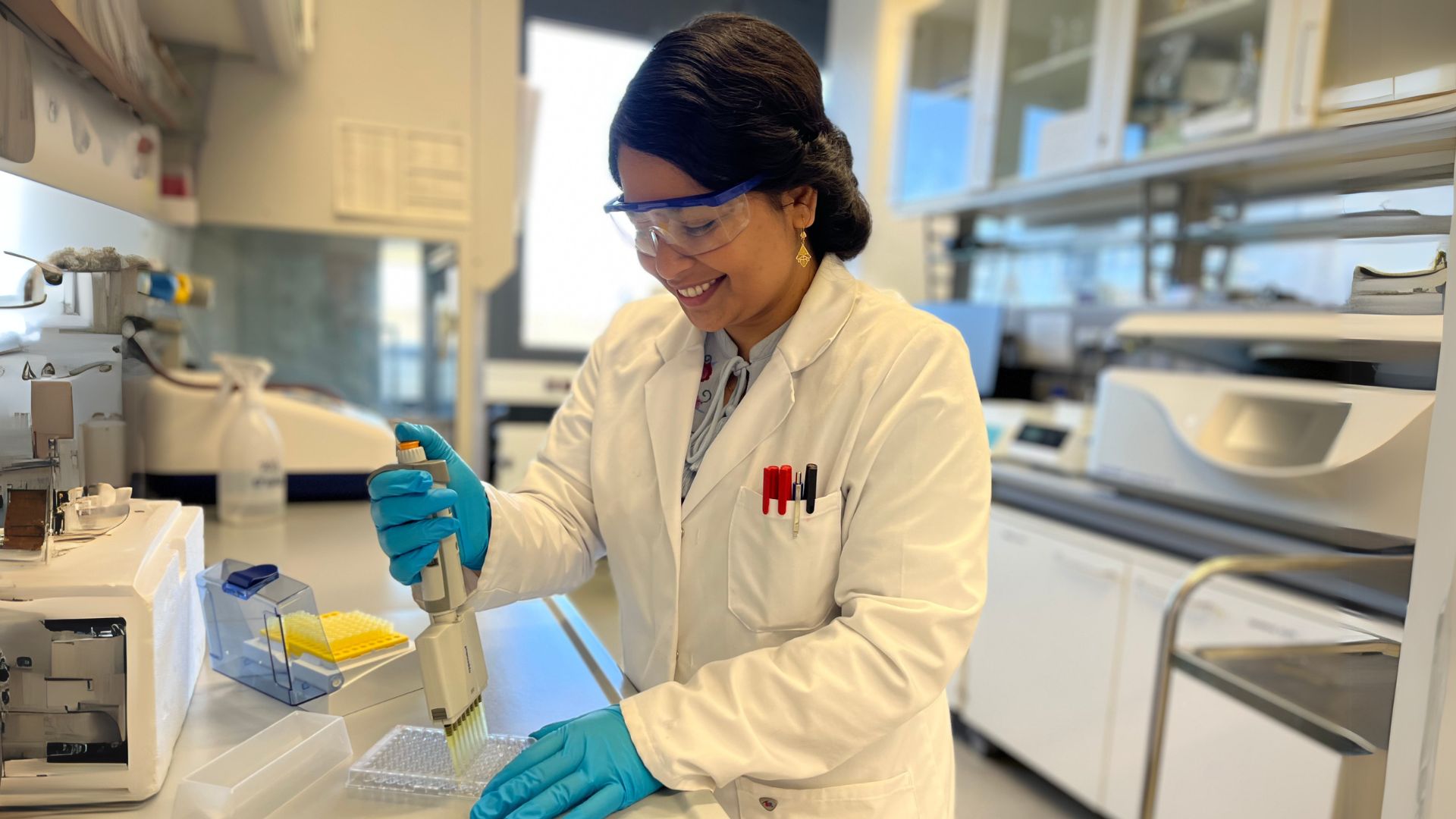
Why I do Research: Nazmun Nahar
Protecting the environment more effectively
- von Juliana Fischer
- 23.04.2025
When Nazmun Nahar works in the laboratory, she looks beneath the surface – literally. She studies how common herbicides impact the tiny creatures living on riverbeds. At the University of Duisburg-Essen, her mission is clear: to better protect life in rivers and streams through smarter analyses and more attention to detail.
Why are traditional studies on herbicides not enough?
Many studies rely on a limited number of standard test species, focus mostly on survival, or use concentrations that don’t match natural conditions. As a result, they often overlook what happens to non-target species in natural ecosystems —organisms that are just as important. I approach it from another angle by examining subtle changes: I observe how field-collected organisms exposed to environmental concentrations of herbicides behave, whether they still move normally, show signs of stress, or show changes in energy reserve or enzymatic activities at the biochemical level.
What needs to improve in ecotoxicological studies?
Clearly, we need to broaden our perspective. Ecosystems are complex; organisms face multiple stressors at once, including pollutants, changing environments, interactions like parasitism or competition, etc. Yet, most studies still overlook these dynamics. In my research, I look for complex interactions and early warning signs. I would emphasize considering environmental factors for more realistic and reliable risk assessment.
You are also investigating the influence of parasites - why?
Parasites are widespread in nature and can significantly affect their hosts’ survival, behaviour, and stress responses—yet they’re often ignored in ecotoxicology. Interestingly, some parasites may increase their host’s resistance to pollutants. In a recent study*, I examined how amphipods respond to the herbicide metazachlor, with and without acanthocephalan parasite infections. Infected amphipods showed increased activity and were less affected by the herbicide. This behavioural change likely aids parasite transmission by increasing the chance of the amphipods being eaten by their final host. Ignoring parasites in environmental studies risks misjudging pollutant effects—I believe they must be seen as key environmental factors.
You studied in Bangladesh and Germany and are now doing your doctorate in Duisburg-Essen. What advice would you give to young women who want to go into science?
Stay curious —and dare to break new ground. Science thrives on dialogue between disciplines. If you keep an open mind and work together with others, you will discover completely new perspectives. And be patient with yourself. It's a long road, but if you keep at it, it's worth it.
Read more about the study here: https://www.sciencedirect.com/science/article/pii/S0269749124021304?via%3Dihub
More Information: Nazmun Nahar, Faculty of Biology, Aquatic Ecology, [email protected]
